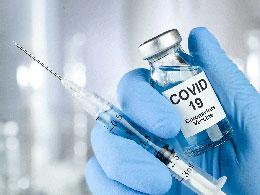Race to find COVID-19 vaccine heats up globally

India and Canada have expressed interest to collaborate with the Philippines in their vaccine trials, an official from the Department of Science and Technology (DOST) said.
In an interview with the Philippine News Agency (PNA) over the weekend, DOST-Philippine Council for Health Research and Development executive director Jaime Montoya said the two countries sent separate proposals, coming from the University of Saskatchewan in Canada and from Bharat Biotech in India that are developing the vaccines for use in the trials.
"As of now, we are talking about the clinical trial phase 3. India is heading to that phase, while Canada is about to start the phase 1," he said.
Montoya said both countries are possible partners of the Philippines.
"We do not know yet which (of the two vaccines) would be effective, that is why the clinical trial phase 3 has to be done. If the result is good, it would gain fast registration to the FDA (Food and Drug Administration) because of the patients' experience and data from the clinical trial where we would participate," he said.
He said India would start the clinical trial phase 3 in September, while Canada may likely start the phase 1 in the first quarter of 2021. Clinical trials would be done in the Philippines once approved and permitted by the FDA of all countries concerned.
"It is required to have the FDA approval of source countries (Canada or India), and (the Philippines' FDA) to conduct the clinical trials here," Montoya said.
The vaccines, he added, should be tested in areas where there are many cases like the Philippines.
“The vaccine has to show that it will be able to prevent cases and protect the people," he added.
In a message to the PNA, DOST Secretary Fortunato dela Peña said the two countries' interest to collaborate would provide the Philippines with more options for vaccines that can be made available in the country.
"The clinical trials will still determine which of them will be truly effective and protective," dela Peña said.
According to the World Health Organisation (WHO), more than 140 teams of researchers are racing to develop a safe and effective coronavirus vaccine.
Vaccines normally require years of testing and additional time to produce at scale, but scientists are hoping to develop a coronavirus vaccine within 12 to 18 months.
Vaccines mimic the virus – or part of the virus – they protect against, stimulating the immune system to develop antibodies. They must follow higher safety standards than other drugs because they are given to millions of healthy people.
So how are vaccines tested?
In the pre-clinical stage of testing, researchers give the vaccine to animals to see if it triggers an immune response.
In phase 1 of clinical testing, the vaccine is given to a small group of people to determine whether it is safe and to learn more about the immune response it provokes.
In phase 2, the vaccine is given to hundreds of people so scientists can learn more about its safety and correct dosage.
In phase 3, the vaccine is given to thousands of people to confirm its safety – including rare side effects – and effectiveness. These trials involve a control group that is given a placebo.
Here are some of the major vaccines in clinical trials;
Sinovac
Chinese company Sinovac is developing a vaccine based on inactivated Covid-19 particles. The vaccine has shown a promising safety profile in the early stages of testing and is now moving into Phase 3 trials in Brazil.
University of Oxford/AstraZeneca
The University of Oxford vaccine is delivered via a chimpanzee virus, called the vaccine vector. The vector contains the genetic code of the protein spikes found on the coronavirus and triggers a strong immune response in the human body. The vaccine is in a combined phase 2/3 trial in the UK and has recently gone into phase 3 trials in South Africa and Brazil.
CanSino Biologics Inc./Beijing Institute of Biotechnology
The vaccine developed by Chinese company CanSino Biologics and the Beijing Institute of Biotechnology – a university close to the Chinese military – reportedly showed promising results in phase 2 testing, although no data from the trial has been published. In a world-first, the vaccine has now been approved for military use, but it is unclear how broadly it will be distributed.
Moderna/NIAID
American biotech company Moderna is developing a vaccine candidate using messenger RNA (or mRNA for short) to trick the body into producing viral proteins itself. No mRNA vaccine has ever been approved for infectious disease, and Moderna has never brought a product to market. But proponents of the vaccine say it could be easier to mass-produce than traditional vaccines.
Meanwhile, a Statistics Canada report says even if there was a COVID-19 vaccine, 12% of Canadians wouldn’t take it, according to a recent questionnaire.
However, 68% said they were very likely to get immunized.
“I think the anti-vaccine movement or anti-vaccine sentiment is a challenge to any vaccine program, whether it’s COVID-19 or any of our routine vaccinations,” testified Dr. Scott Halperin, director of microbiology at Dalhousie University’s Canadian Centre for Vaccinology, at the Commons health committee.
“There’s been a lot of effort to try to understand that movement.”
Of those surveyed, 39% had little trust in Ottawa while 26% didn’t trust the Public Health Agency of Canada.
“The degree to which individuals have trust in policymakers and public health authorities has been associated with their willingness to engage in public health measures such as vaccinations,” said a report called Canadians’ Willingness To Get A Covid-19 Vaccine When One Becomes Available.
Halperin said more than 20% of Canadians routinely hesitate to get vaccinated.






